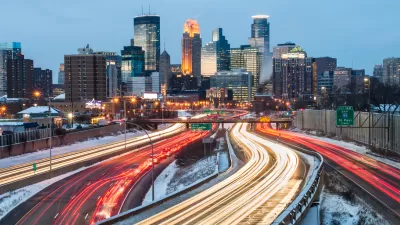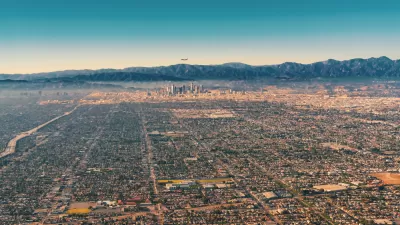Nicolai Ouroussof uses four cities--New Orleans, Los Angeles, The Bronx, and Buffalo--as case studies on how America's urban areas, long neglected, can once again be great.
"Even China, a country where centralized planning often looks like a grotesque parody of American postwar development, is beginning to move toward more sustainable, dense urban models. The government recently announced an $88 billion plan for freight and passenger trains that will link every major urban center along the country's coast, from Beijing to the Pearl River Delta. And it is building miles of subway lines in booming cities like Shenzhen and Guangzhou.
The problem in America is not a lack of ideas. It is a tendency to equate any large-scale government construction project, no matter how thoughtful, with the most brutal urban renewal tactics of the 1950s. One result has been that pioneering projects that skillfully blend basic infrastructure with broader urban needs like housing and park space are usually killed in their infancy. Another is that we now have an archaic and grotesquely wasteful federal system in which upkeep for roads, subways, housing, public parkland and our water supply are all handled separately.
With money now available to invest again in such basic needs, I'd like to look at four cities representing a range of urban challenges and some of the plans available to address them. Though none of the plans are ideal as they stand today (and some of them represent only the germ of an idea), evaluated and addressed together as part of a coordinated effort, they could begin to form a blueprint for making our cities more efficient, sustainable and livable."
FULL STORY: Reinventing America’s Cities: The Time Is Now

Maui's Vacation Rental Debate Turns Ugly
Verbal attacks, misinformation campaigns and fistfights plague a high-stakes debate to convert thousands of vacation rentals into long-term housing.

Planetizen Federal Action Tracker
A weekly monitor of how Trump’s orders and actions are impacting planners and planning in America.

In Urban Planning, AI Prompting Could be the New Design Thinking
Creativity has long been key to great urban design. What if we see AI as our new creative partner?

King County Supportive Housing Program Offers Hope for Unhoused Residents
The county is taking a ‘Housing First’ approach that prioritizes getting people into housing, then offering wraparound supportive services.

Researchers Use AI to Get Clearer Picture of US Housing
Analysts are using artificial intelligence to supercharge their research by allowing them to comb through data faster. Though these AI tools can be error prone, they save time and housing researchers are optimistic about the future.

Making Shared Micromobility More Inclusive
Cities and shared mobility system operators can do more to include people with disabilities in planning and operations, per a new report.
Urban Design for Planners 1: Software Tools
This six-course series explores essential urban design concepts using open source software and equips planners with the tools they need to participate fully in the urban design process.
Planning for Universal Design
Learn the tools for implementing Universal Design in planning regulations.
planning NEXT
Appalachian Highlands Housing Partners
Mpact (founded as Rail~Volution)
City of Camden Redevelopment Agency
City of Astoria
City of Portland
City of Laramie




























